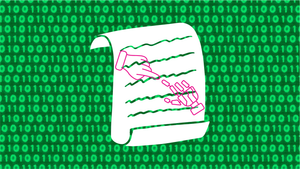Two US senators, Josh Hawley and Richard Blumenthal, have introduced proposals in Congress to introduce a new law that would clearly set out the obligations of AI companies when making use of copyright protected works and personal data.
In terms of the copyright obligations, a statement from the senators explains that their proposed new law would “bar AI companies from stealing and training on copyright works” and “safeguard individuals’ copyrighted materials from being used in AI training or AI-generated content without permission”.
Hawley adds, “AI companies are robbing the American people blind while leaving artists, writers and other creators with zero recourse. It’s time for Congress to give the American worker their day in court to protect their personal data and creative works. My bipartisan legislation would finally empower working Americans who now find their livelihoods in the crosshairs of big tech’s lawlessness”.
The senator’s position was already pretty clear on all this, given during a Senate Judiciary Subcommittee hearing last week he said that AI companies were willfully engaging in “the largest intellectual property theft in American history”.
The copyright obligations of AI companies are currently at the heart of numerous lawsuits working their way through the US courts.
Creators and rightsholders, including in the music industry, insist that AI companies must get permission before using any copyright protected works in the training of their models. However, many AI companies argue that AI training constitutes ‘fair use’ under American copyright law, and therefore permission is not required.
That stance has been supported - at least in part - with initial summary judgements in two of those lawsuits. In two separate legal battles respectively involving Anthropic and Meta, both of which were sued by a group of authors, judges concluded that the AI training was fair use - although with some technicalities in the judgements that may favour copyright owners.
Crucially, due to the complexities of these sorts of lawsuits, a judgement that says AI training is fair use in one case does not necessarily mean that all AI training would fall under fair use. Indeed, the US Copyright Office published a report earlier this year saying just that - that AI training might be fair use in some scenarios, but almost certainly isn’t in other scenarios.
However, presumably - if passed - Senators Hawley and Blumenthal’s new law would remove these ambiguities and make it very clear that AI companies always need explicit permission before using copyright protected works as well as personal data. The proposals will be strongly opposed by the tech lobby, which has its own champions in Congress and strong connections in the White House.
Blumenthal has also commented on what he and Hawley are calling The AI Accountability And Personal Data Protection Act, saying, “this bill embodies a bipartisan consensus that AI safeguards are urgent - because the technology is moving at accelerating speed, and so are dangers to privacy”.
Honing in more on the personal data protections in the proposals, he adds, “Enforceable rules can put consumers back in control of their data and help bar abuses”. Tech companies “must be held accountable - and liable legally - when they breach consumer privacy, collecting, monetising or sharing personal information without express consent”.

